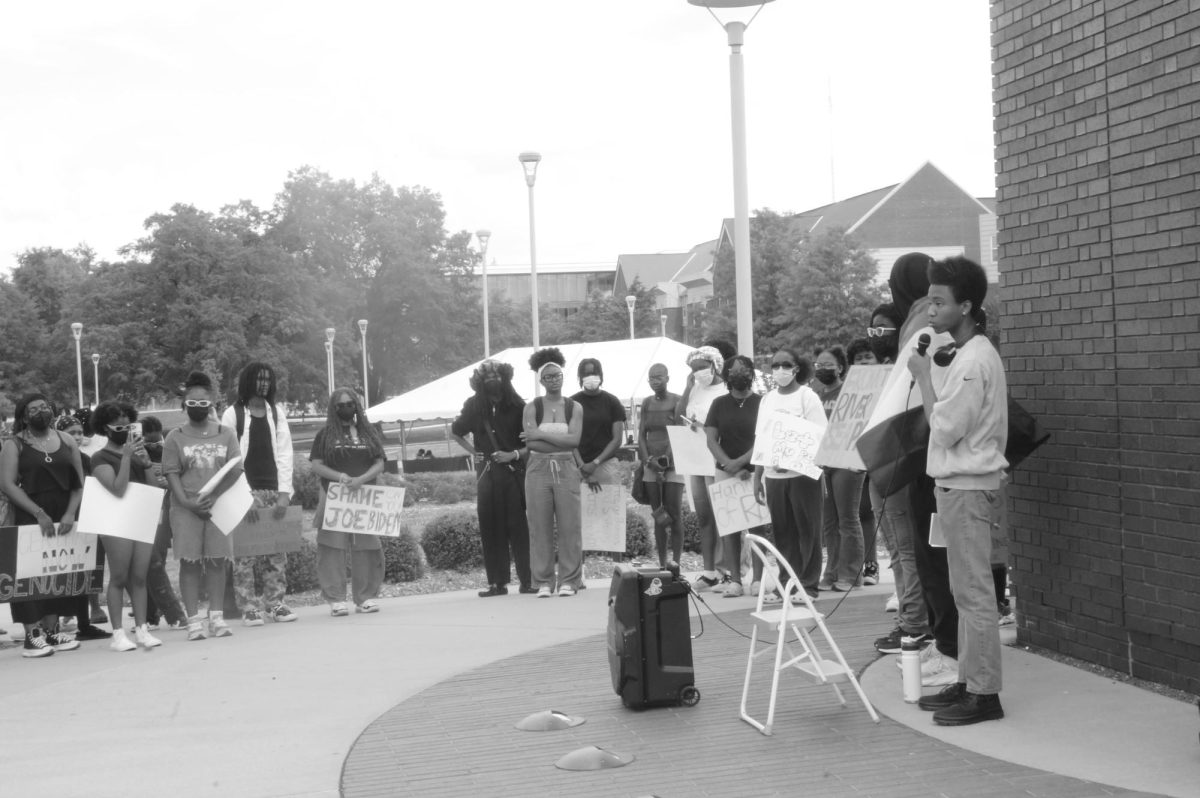Guilford College’s website dedicates an entire page to the explanation of the school’s core values and missions. One of them represents the College’s desire to become an institution characterized by equality and other aspects of multiculturalism, diversity and inclusion.
Unfortunately, these goals may not have been accomplished yet.
“We have succeeded in being diverse in numbers of community members who are of various races, religions, sexual orientation and countries,” said Director for Educational Initiatives and Partnerships Jada Drew ‘07. “However, we need to put more effort in becoming equitable and inclusive. This is the next step.”
Although diversity as a core value was implemented 10 years ago, there seems to be a lack of it among faculty.
“In fall 2014, there were 94 full-time, tenured faculty members,” said African American Studies Professor, Vice President for Academic Affairs and Academic Dean Adrienne Israel. “Of the 94, there were six African -American, five Latino, five Asian or Asian-American, and one from Middle East.
“So, it’s a total of 17 percent compared to 83 percent of white faculty members.”
Israel also stated that some of the Latino or Middle Eastern faculty are considered white, reducing the percentage of people of color.
“There’s not enough faculty of color here,” said junior Yashua Clemons. “I’ve only had one black professor since I’ve been here, and this is my third year. I’d like to see more.”
For some, having a multicultural faculty goes beyond just achieving a goal.
“(Diversity) helps the educational environment tremendously,” said Israel. “When we bring in foreign national faculty, for example, the students have to be taught how to learn differently, or how to adjust to a teacher who’s not typical or what they consider typical.”
Guilford created a diversity plan in October 2014 to evaluate its accomplishments and list what areas needed additional work to create a multicultural, racism-free environment.
One of the goals written into the plan was to “increase the diversity of faculty and staff at all levels based on race, sex, ethnicity, sexual identity and international origin” by 2015.
The diversity plan also includes plans of action. Judicial board training and implementing plans for faculty and staff recruitment are part of the solution strategy.
However, the College’s recent budget problem could be affecting the decision of hiring a diverse faculty.
“The budget problem contributes to the factors,” said Assistant Director for Multicultural Education and Latino Community Coordinator Irving Zavaleta Jimenez ‘08. “When you are trying to be more intentional, it means more time, more energy, more funds. But if at the same time you’re dealing with this situation, then it can be a burden.”
Solutions are already being discussed and studied.
“I’m part of the Multicultural Leadership Scholars Program, and one of my projects this year is ‘the Rooney rule,’” said Clemons. “We’re trying to increase the amount of faculty of color on campus as there seems to be a big disparity (which) has been here for a while.”
This project is based on the National Football League’s rule with the same name that requires teams to interview minority candidates for head coaching and senior football operation jobs.
According to Clemons, the school has to interview at least two people of color throughout the process of hiring, but there’s no guarantee that one of these people will be hired.
“We face many challenges in recruiting and hiring, from offering ample salaries and a welcoming, supportive environment to developing alternative professional networks that can identify and invite qualified candidates with diverse backgrounds,” said Chair and Professor of Economics Bob Williams.
The Faculty Handbook states that “the Search Committee shall submit to the Dean’s Office a short list, (6-10 files) of candidates,” and “if the list … does not include a candidate who would promote the College’s goal of hiring diverse role models for our students, the committee must request permission of the Academic Dean to invite any candidates to campus.”
“This is a statement that the faculty approved,” said Israel. “They’re supposed to do all these things to secure candidates from diverse backgrounds. They say that they attempted to, but that there aren’t many people in the field or that the candidates they had did not fit the criteria they were looking for.”
Another issue rests on retaining faculty members of color once they are hired.
“Guilford College historically accepted its first black professor in the art department in the early ‘70s,” said Drew. “That professor was a tenure professor in the art department. Since he’s left, there hasn’t been any other black tenure faculty in that same department.”
The lack of minority representation on campus can be detrimental for students who feel the need to have someone they can relate to.
“One key point is trying to get diverse faculty in campus life,” said senior David Wheaton, who is also part of the MLSP. “Guilford is pretty diverse when it comes to the student population, but unfortunately, sometimes there are no African-American faculty for African- American students and there are no Latino faculty for Latino students.”
To Israel the solution for this situation is not a matter of money or hiring practices, it is a matter of embracement.
“There’s not one Guilford College, there’s not one group that speaks for Guilford,” said Israel. “You can have a large variety of people on campus — students, faculty, staff administration — you can be here fiscally, but the question is: Are you included? Is it inclusive?
“We need to make an effort so everybody here feels like they’re home.”
[polldaddy poll=8706236]







